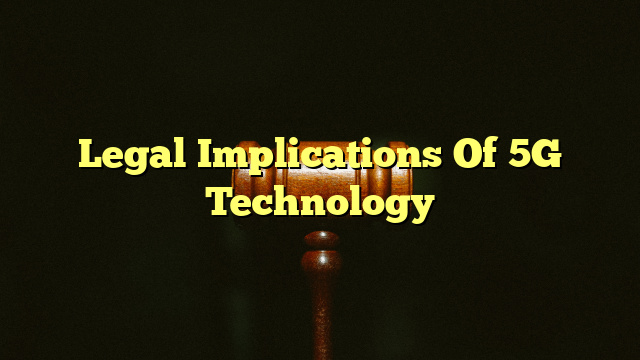Table of Contents
Security Implications of 5G Technology
With the advent of 5G technology, there are several security implications that need to be considered. The increased speed and connectivity of 5G networks can potentially lead to an increase in cyber attacks and vulnerabilities. The massive number of connected devices and the use of cloud-based services in 5G networks create a larger attack surface for hackers.
Additionally, the use of virtualization and software-defined networking in 5G networks introduces new security challenges. These technologies can be exploited by malicious actors to gain unauthorized access to sensitive information or disrupt critical infrastructure.
To mitigate these security risks, it is important for organizations and governments to implement robust security measures and protocols. This includes encryption, authentication, and regular security audits to identify and address vulnerabilities.
Implications of 5G Implementation
The implementation of 5G technology has wide-ranging implications across various sectors. In the healthcare industry, for example, 5G can enable remote patient monitoring and telemedicine, improving access to healthcare services. However, the collection and transmission of sensitive medical data raise concerns about patient privacy and data protection.
In the transportation sector, 5G technology can facilitate the development of autonomous vehicles and smart transportation systems. While this promises increased efficiency and safety, it also raises questions about liability in the event of accidents or system failures.
Furthermore, the deployment of 5G infrastructure requires the installation of a large number of small cells and antennas. This can lead to disputes over property rights, zoning regulations, and the potential health effects of prolonged exposure to electromagnetic radiation.
Ethical Issues with 5G
There are several ethical issues associated with the implementation of 5G technology. One concern is the potential for increased surveillance and invasion of privacy. The vast amount of data collected by 5G networks, combined with advanced analytics and artificial intelligence, can enable unprecedented levels of surveillance.
Another ethical concern is the digital divide. 5G technology has the potential to exacerbate existing inequalities in access to information and resources. Without proper infrastructure and affordable access, certain communities may be left behind, widening the digital divide.
Additionally, the deployment of 5G networks requires the use of natural resources, such as land and energy. The environmental impact of 5G infrastructure, including the production and disposal of electronic devices, raises ethical questions about sustainability and responsible resource management.
Legal Framework for 5G
The legal implications of 5G technology are governed by a combination of international, national, and regional laws and regulations. At the international level, organizations such as the International Telecommunication Union (ITU) and the World Health Organization (WHO) provide guidelines and standards for the deployment and operation of 5G networks.
On a national level, countries have their own laws and regulations that govern the use of 5G technology. These may include spectrum allocation, data protection, cybersecurity, and competition laws. Governments also play a role in ensuring compliance with international standards and addressing any potential conflicts between national and international regulations.
At the regional level, organizations such as the European Union (EU) have developed specific regulations for the deployment of 5G networks. These regulations aim to ensure the security, privacy, and interoperability of 5G infrastructure across member states.

